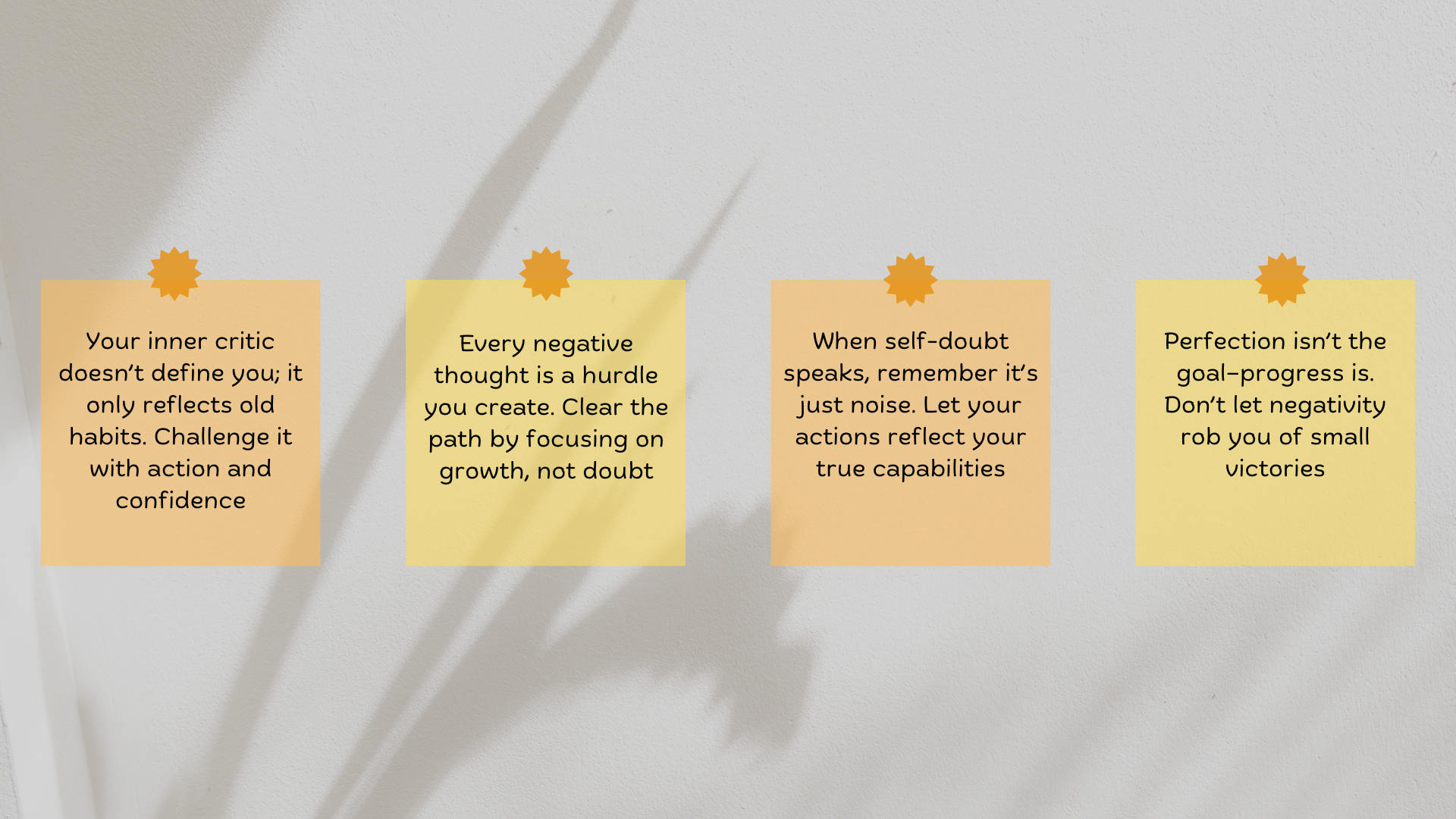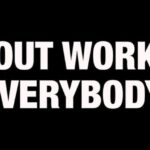This is not just another internet article preaching ways to overcome negative self talk; this article aims to help you realize your path to productivity.
What is Negative Self-Talk?
Have you ever thought about achieving something but failed to make even the first move? I have, and I’m sure you might have at least one such incident in your life.
What stopped you from taking the first step?
Is it your inability to do the task? NO
Is it your lack of experience? NO
Is it because of the benchmarks people set? ABSOLUTELY NOT
Then what is it?
It’s your fear of failure.
Some of you may disagree, but let me break down the mindset of an ordinary person.
We, as humans, give a lot of importance to negative imagination. Why do you think there are so many over thinkers in the world? Because when we don’t see a way out, we comfort ourselves with negative imagination. That is why there is an upward spike for content that is sad. Over thinkers magnify everything and start feeling nervous even before starting.
In our imaginary world, we can take a hit because it’s a battle between us and our brains. But in the real world, we aren’t ready to take that hit because it’s a battle between us and society. A small hit in reality can scar us and remain in our core memory, making us feel bad. Instead of carrying that pain in real life, we carry it in our minds by thinking negatively about it. This is negative self-talk.
Negative self-talk is your inner voice that constantly points out your mistakes and faults, turning them into insecurities. It just makes you anti-social.
The Deceptive Comfort of Self-Criticism
Have you ever been complimented on your looks, skills, work, communication, or sense of humour? Most likely, yes. And what was your response? “DON’T LIE” or “YOU’RE JOKING.”
You might say this because, despite being good at something, you don’t truly believe it. You take compliments lightly, but if the same person criticise you, you take it seriously. That one negative opinion becomes the opinion of the entire world in your imagination.
The reason for this is that, from childhood, many of us are used to hearing about our mistakes and faults rather than receiving praise. So we tell ourselves, “I’m not good at this,” “I lack ability,” “I’m not good-looking,” or “They’re out of my league.” These thoughts may make us sad, but they are also oddly comfortable.
Here’s an example to illustrate:
Saying, “I will run 5 km every morning at 5 A.M for the next 365 days,” is a challenging statement filled with conviction. But is it comfortable? No. Most people hesitate to commit to this because it’s difficult. Only a few can bring such a statement to life.
On the other hand, saying, “I might not run 5 km every day,” is a negative yet comfortable statement. It’s easy to say because it doesn’t carry the weight of being the best every day. You end up taking no action towards your goal.
This example highlights both the comfort negative statements provide, and our confidence levels. Confident people typically speak positively about themselves, while those who lack confidence often rely on negative self-talk.

The Perfection Obsession
There are two kinds of perfectionists: those who are particular about details and hate imperfections, and those who seek perfection to avoid backlash.
Have you ever started something but abandoned it in pursuit of perfection? If yes, then you may not be aiming for perfection but rather trying to avoid failure. When you judge whether something is perfect, remember: perfection is a loop with no end until you decide to end it.
The truth is that under skilled yet confident, positive individuals achieve more than those highly skilled individuals, who are negative and lack confidence. It all starts in the brain. Your attitude toward your work before beginning it, determines your success.
The Story of Nelson Mandela
Nelson Mandela, a South African leader who opposed racial discrimination, was imprisoned for 27 years. Despite his long imprisonment, he stayed positive, inspiring fellow prisoners.
Authorities thought his will to change the system will fade away with time in prison, but he emerged as South Africa’s first democratically elected president.
Mandela’s story shows how internal positivity and resilience are powerful tools against negative self-talk.

The Path Forward
“We become what we think.” We all have flaws, even those who set high standards, but they stay positive. There may be times when things don’t go as expected, and you see it as failure. You might dismiss compliments because of a negative version of yourself you’ve created. This negative mindset is like your brain’s “internet”—you keep revisiting it, searching for reasons to feel bad.
Your path to greatness is within, but if your thoughts don’t align with your mission, you’ll keep falling short. While many “hacks” exist to combat negative self-talk, such as meditation, exercise, and surrounding yourself with positive people, the most effective hack is within you. Control your thoughts, shift your focus from negative to positive, and act swiftly. Don’t let naysayers influence your mind.
There is always a ray of hope, but you must be open enough to see it. You may know the story of the frog in the well: as frogs outside kept saying ‘it can’t be done,’ the frog in the well gave up. Don’t be that frog. For the world to believe in you, you must believe in yourself first.
As a community of hustlers, theHustleWeek aims to positively impact your life. If you found this article useful, please share it and also share your thoughts in the comments section. Your feedback encourages us to create more curated content each week. Feel free to explore our other blogs as well.
Let’s make every week count.





